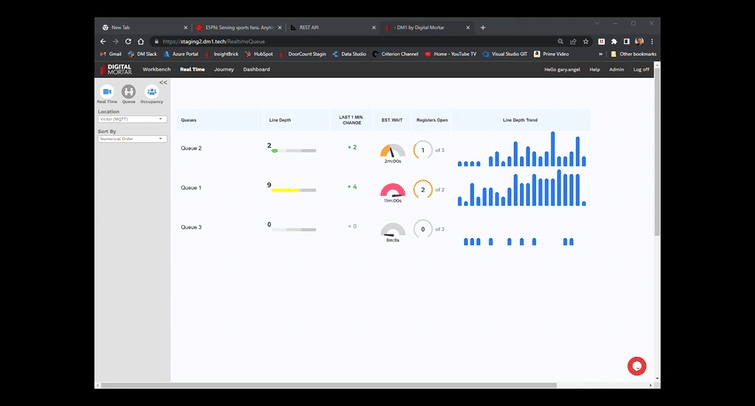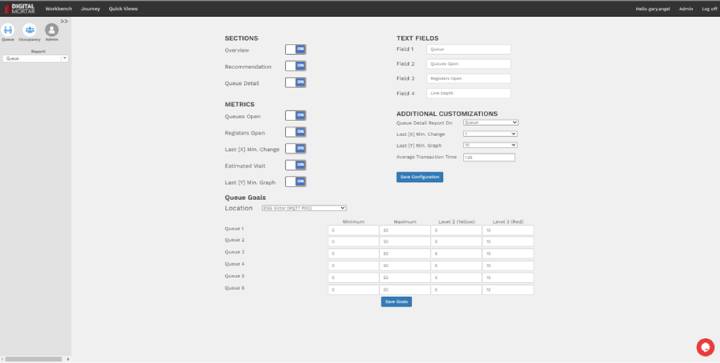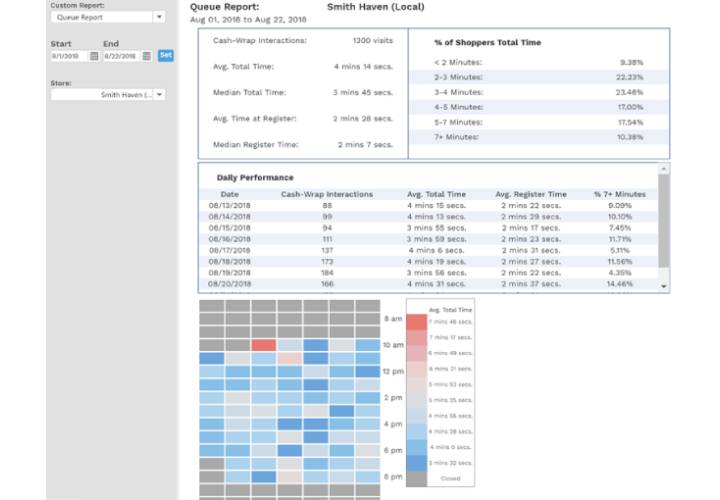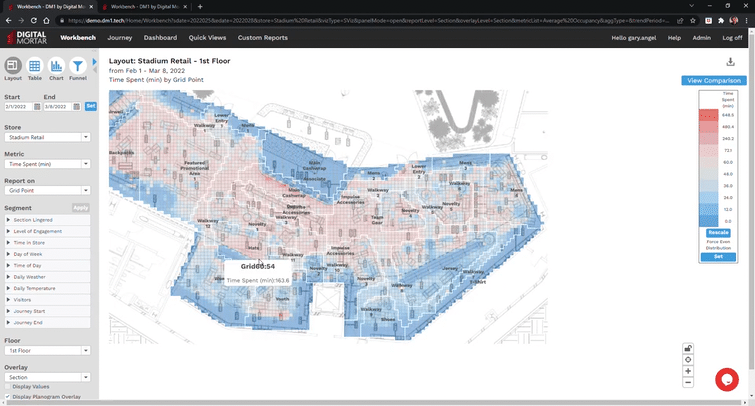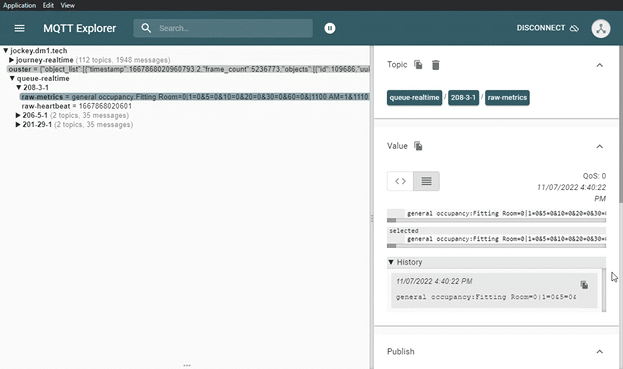Crowd Analytics and Optimization for Airports
Digital Mortar’s DM1 platform handles every aspect of people-measurement and crowd-analytics in complex airport environments. Flexible, dynamic queue measurement for every type of line, from Security, to Check-In, to Self-Check to Global Entry. Flow analytics across the entire airport. Detailed operational analysis of key chokepoints and high-value customer areas like food courts. Even full journey analytics for retail areas. It’s a single solution to every people-measurement problem you have.
What makes it so flexible? Versatile technology support: electronics, camera, LiDAR. Fully configurable real-time reporting. Built-in, consumable real-time AND analytic feeds. Integrated public-view builder. Dynamic digital mapping. On-premise or cloud. Operationally robust and fully redundant.
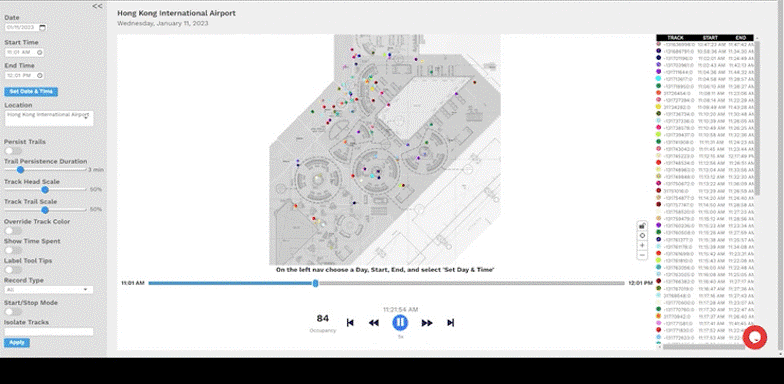
-
Flexible Queue Management
Any type of queue. Any type of area. Configurable digital mapping of spaces to support dynamic queue tracking in complex areas like check-in. Real-time dashboards. Deep analytics. Predictive alerting. Public views. Multiple counting methods. Advanced sensor data cleansing.
-
Operational Analysis and Monitoring
Take advantage of real-time monitoring and alerting for ANY measured area. In application or via MQTT real-time feed. Then drill-down into operational problems with advance metrics and full playback of customer movement and flow.
-
Full Flow
Track end-to-end flow across the airport or detailed individual level data in key areas. You can measure and analyze customer behavior at food-courts, in entry and egress zones, premium lounges, and self-check-in areas.
-
Retail Optimization
Deliver incredibly powerful retail analytics to your tenants. Every customer. Every behavior. Every step of the journey. What they looked at. What they didn’t. What drove conversion.
